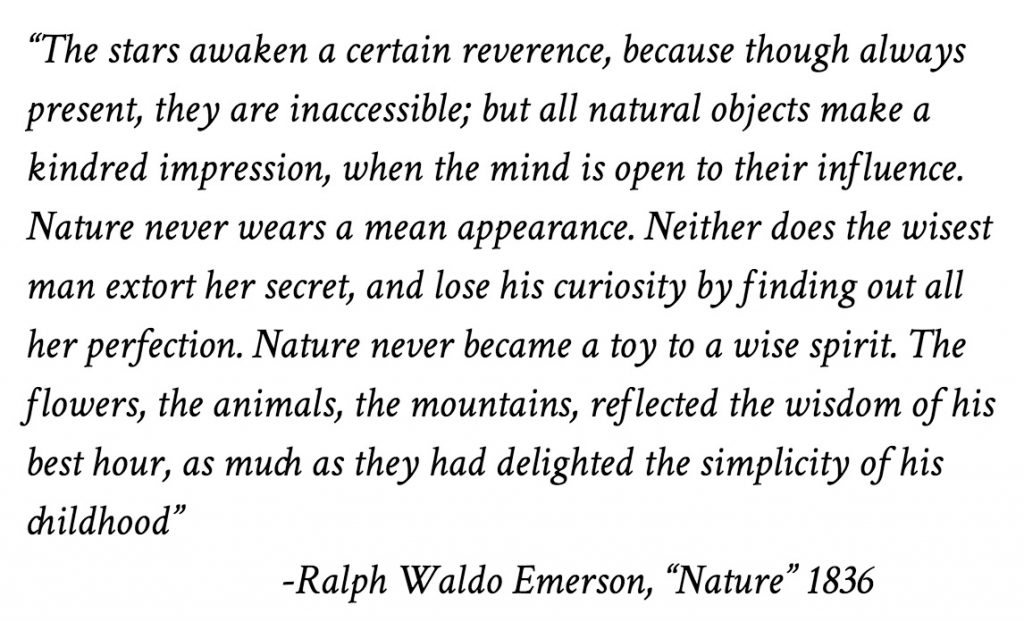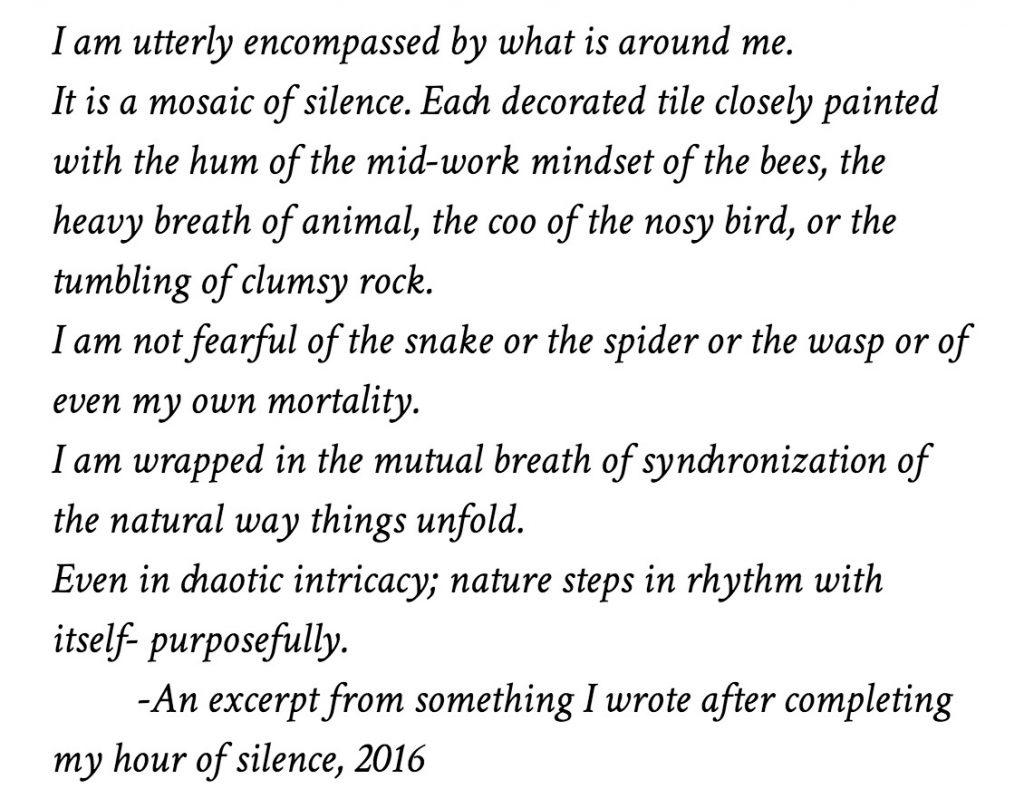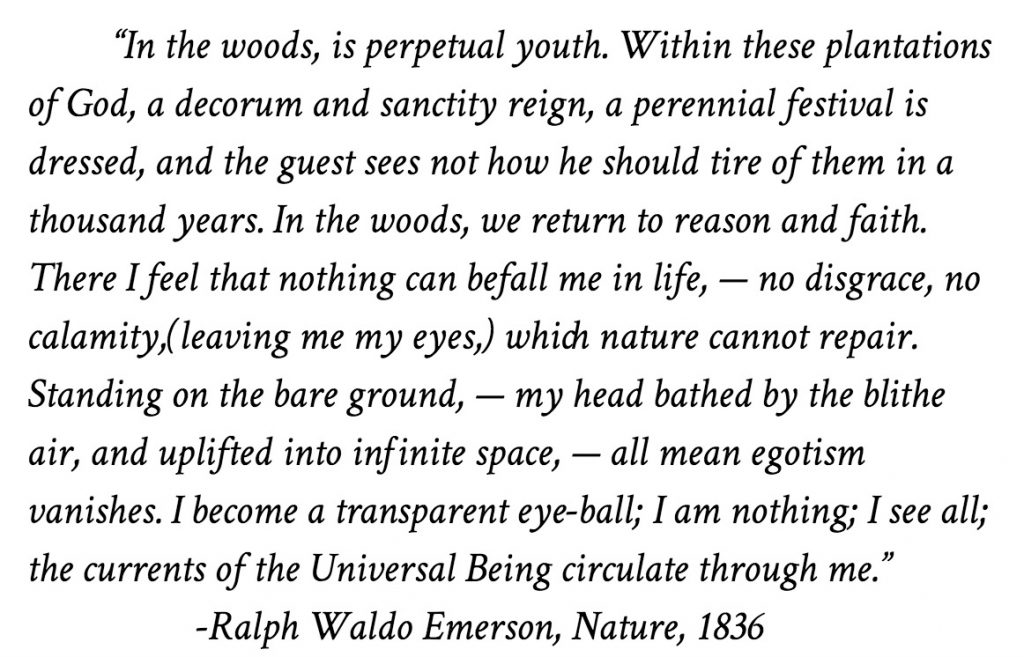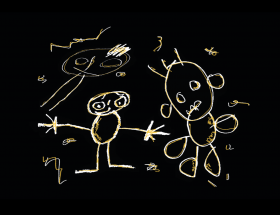Ralph Waldo Emerson may have been the first love of my life.
As I sat in my Advanced Placement English Language course at age 16, listening (with what could really only be described as ambivalence) to a lesson on the transcendentalists of the United States in the 1800s, seeing his name on the board rang a tiny bell in the back of my brain. I had probably come across some cheesy and contrived quote while scrolling through Pinterest at 2.00am (a commonplace high school activity of mine) that was accredited to him (but that he most likely never said). Or perhaps he had written something that squeezed its way into the poetry anthology that sat slightly neglected on my nightstand- the one whose spine was bloated with poems I had flipped through and read without understanding.
I wasn’t sure.
What was certain, however, was that nothing about him, nor his twin flame Thoreau, seemed particularly thrilling.
We were assigned a variety of his essays to read; they lay embedded in our textbook in the section on 19th century American literature, dotted with footnotes and discussion questions, staring up at me with sparkling eyes of grandiose vocabulary and pupils of verbose jargon from the 1800s. In conjunction, we were given a rather creative project: in the spirit of the transcendentalists, we were to sit outside for an entire hour with nothing to entertain ourselves. No phones, no books, no paper, no music. Just silence and the humming of the outer world.
Now, if you don’t know much about transcendentalism, here it is in its most basic form.
Essentially, transcendentalism is a philosophical and social movement influenced by romanticism, Platonism, Hindu texts on philosophy of the mind, and the Kantian school of thought. It is considered a response to the rationalist movement, which held strong to a vision of a world that “regards reason as the chief source and test of knowledge”. In contrast, transcendentalism longed for intense spirituality and connection with the self; with the idea of the individual’s thoughts, beliefs, and experiences as being of congruent authority to rational thought. They believed that all of nature and all of humanity are ‘divine’ in and of themselves. That individuals are inherently powerful and good, and that institutions and the tenants of our constructed societies corrupt the purity of existence as people age. As such, they stressed the importance of self-reliance and independence, and of steering oneself away from technological advancements, institutions, or systems that actively clouded one’s ability to connect to themselves and to the world around them- particularly the environment. The natural world represented an opening for the individual to reflect on structures and systems, on purpose, and on themselves, as well as something that stood uncorrupted from societal pressures.
I don’t think our teacher assumed that this aforementioned assignment would prompt our own inner transcendentalist to crawl from our cell-block ribcages and run amock through the woods, barefoot and reciting passages from the Upanishads.
And yet, I remember feeling slightly intrigued. It was almost as if, by completing the work, I’d be entering something sacred and ancient.
When I arrived home, I opened the textbook and began to introduce my neurons to Emerson’s ink.
Transcendentalist writing has a focus on poetic prose driven by the desire to entice a reader into a state of self-consideration; to question their purpose and their focuses, to make them aware of the potential to reach a higher state of peaceful existence within the simplicity of what people already have.
I remember feeling like my world was set aflame by Ralph Waldo Emerson, and was simultaneously soothed by the cool waters of his diction.

It was love at first sight.
I swam gorgeously through his stresses on the importance of the natural world, diving into his beliefs on self-expression and originality. I felt comforted by his allocation of power to the individual, of divinity to simplicity, of intrinsic goodness in the natural processes of our world.
As I sat for an hour in the musical quiet of the outdoors, I felt some dark piece of myself crawl out from under the self-inflicted and structurally settled weights of being 16 years old and distracted with things that felt gargantuan, but were in their truest forms, menial.
For a man whose greatest enemy was the telegraph, Emerson’s rhetoric on invasive technological impediment upon human thought, originality, and introspectivity is surprisingly relevant now more than ever. At 16 years old I felt it. Years later, it’s relevance has only increased.
As a society consistently inundated with an influx of social media platforms that prompt interconnectivity and a subsequent myriad of self-image issues and lifestyle concerns, we are being pulverised by the heavy pressures to succeed in conventional formats (that primarily align themselves with the tenants of western capitalist society). The overall temperament this leaves us with is one characterised by malaise and anxiety; we are ambitiously attempting to achieve happiness by utilising an arsenal of tools designed to oppress any unique or individualised definition of said happiness. We are told we will feel good if we obtain certain monetary value, or if we bend ourselves into a future that has been predetermined as ‘successful’, and has been lived in by many people before us. We feel bad when we don’t look like the people on our Facebook timelines, don’t have the income to afford those nice shoes, or if we don’t have gorgeous photos from a lavish vacation to parade about.
Yet, in truth, we really don’t NEED much of what we have been told to want, and we shouldn’t fear much of what we have been told to worry about.
Yes, materials help us succeed in a world that embraces material measurement (and I will never forget the fact that it is almost too easy for an individual of my economically and socially privileged background to say this). However, relationships, thoughts, creation, destruction- the basic cruxes of existence and nature- are significantly more important than anything that has begun to cloud our priorities and values. Genuine connection to ourselves and others (and the subsequent internal happiness that follows) are the foundational blocks to a true ‘successful’ human experience. It has nothing to do with whether or not our essays were graded well, if an Instagram post got hundreds of likes, or if we bought a new and trendy outfit. This, however, becomes harder and harder to see and comprehend when the fog of supposed inferiority worsens our vision. When new technological advancements push new standards upon our self-worth and identity. When we believe there is a set sort of person we need to be.
Transcendentalism promotes the concept of reconnecting to yourself by going back to instinct. When sitting out in the woods in silence, I remember feeling that for the first time, I truly saw the world work mechanically around me. Trees, flowers, bees, deer, ants, the process of photosynthesis- all these things work and grow and exist with no existentialist blockage. Not a trace of the very familiar angst of trying to understand what it is to be human and to be happy. I stopped questioning whether I was uglier than other people my age, if I was stupid because of my bad grade on the maths exam, if I was doing enough to be considered ‘smart’, ‘successful’, or ‘special’. Even if just for an hour, I felt as though my life didn’t have to be justified by my structural accomplishments. I was justified in existing simply because I exist.

By viewing processes of nature and valuing them more than the ‘corrupting’ institutions and external pressures placed upon us, we begin to value ourselves. We remember that many of our anxieties, fears, or wishes derive themselves from areas of our lives that we have not placed importance on actively. Rather, we have been told to care, prompted to worry, and passively comply. When even just sitting out in nature, it becomes clearer that we are a valuable part of the natural world. We are, in our cores, animals. And therefore, we are a part of that mutual, earthy breath of synchronisation. However, as free-thinking and powerful individuals, we make the choices to be different.
That distinction is key to prioritising what we truly believe to be important.
Funnily enough (despite the fact that I have praised him enough to create my own third wave transcendentalist movement), Emerson would take issue with this article. Due to his undying dedication to believing in the strength of original thought and human agency, Emerson thought that resting upon the thoughts of those from the past was innately flawed. He took issue with the idea of ascribing undying appraisals to “Moses, Plato, and Milton” if we were to simultaneously believe that our own intellects were inferior to theirs. Emerson noted that individuals tend to dismiss “without notice his thought, because it is his”, and because it isn’t rooted in the pseudo-justificator that is history.
And yet, it is exactly because Emerson allotted such individualised power and internal divinity to all beings that I say a transcendentalist tradition is one worthy of retaining throughout time.
When you begin to feel the weight of a world you did not ask to carry upon your shoulders, I would encourage you to revert to a transcendentalist mindset. Read some Emerson, some Thoreau, some Conway, some Fuller. Hell, even just go sit outside quietly for 10 minutes if you’re up for it.
Essentially, simply remind yourself of your power as a free-thinking individual, and realise that many of the struggles you face are structural and enforced by our many societal systems and culturally hegemonic values. They are not inherent to your existence. They do not own you.

art by: Sadie Loeber





OH MY GOD, I am so impressed by your writing ability. However, I am worried about commenting more as everything can always be turned to a criticism when in fact it is as usual me just wondering how I got such a talented daughter.I read your article two times but I could not summarize it yet. I will try to do it however.
When I read your text I always think of “The New Yorker” which I always find difficult to read. But I know that one of our lawyers reads it from beginning to end and loves it. Your writing is even more complicated. No, no it is not criticism, on the contrary.
I find it an interesting challenge to try to present your thoughts to a foreigner or to the common man. I might not succeed, however.
And I do like it that it is my daughter who is writing like this. And I am proud I moved to the US from Sweden. WIth your skills it would have been a waste to write to only 10 million people.
There is a lot of power in knowing how to express yourself in writing in the business world.
Cf